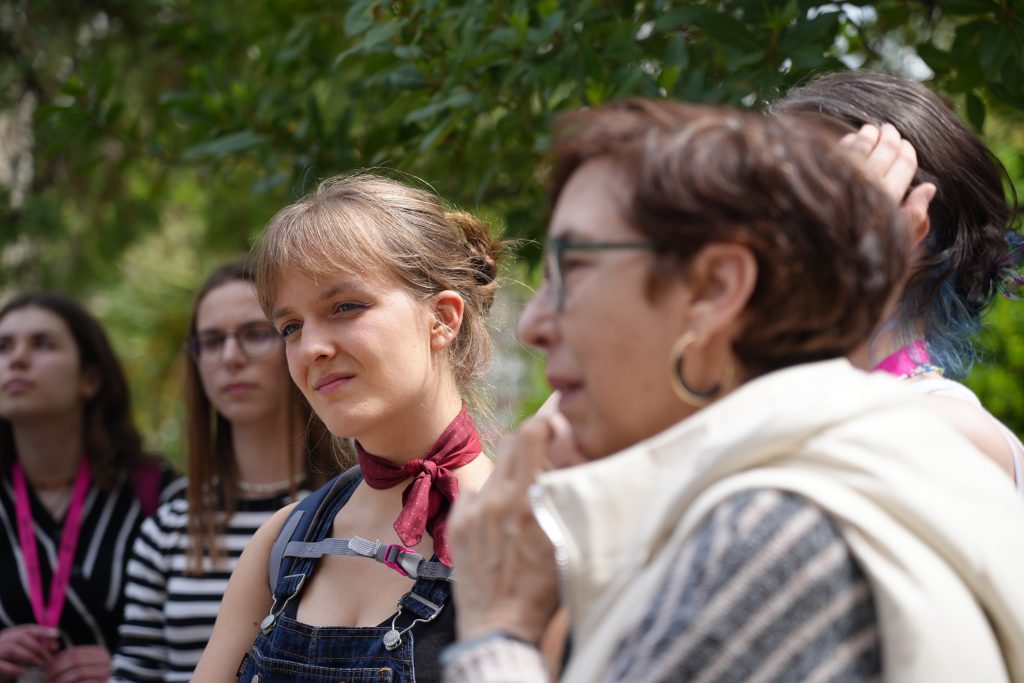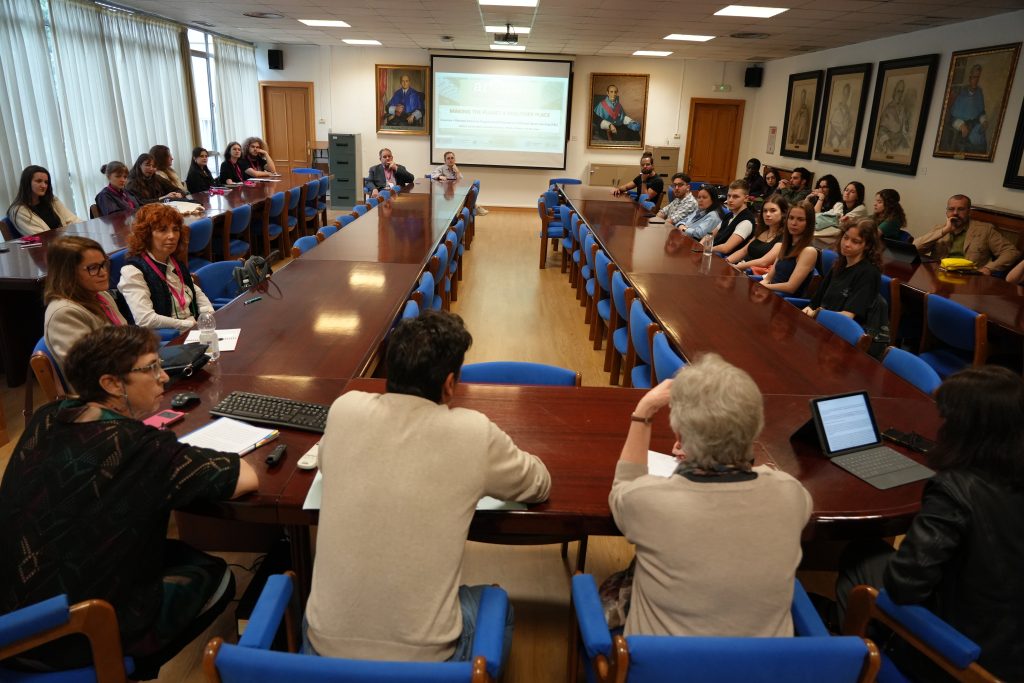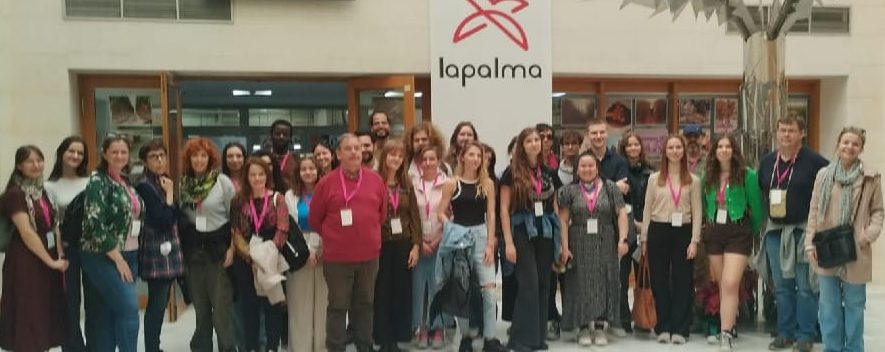Blended Intensive Programme (BIP) “Making the planet a healthier place” at the University of Granada
|
16 Jul 2025|
16 Jul 2025The University of Granada hosted 30 Arqus students for the in-person phase of the Blended Intensive Programme (BIP) “Making the planet a healthier place”.
This BIP was co-funded by the Erasmus+ programme and the Arqus Alliance through the Arqus calls for Blended Intensive Programmes (BIPs) and challenge-based-learning (CBL) programmes.
It brought together the universities of Granada, Minho, Vilnius and Wrocław, with the University of Granada as the coordinating institution.
The programme was based on a hybrid learning model, combining remote lectures, a challenge-based collaborative research project, and the in-person week at the University of Granada. The BIP “Making the planet a healthier place” content was multidisciplinary, covering different fields of knowledge and involving lecturers, Bachelor’s and Master’s students and administrative staff.
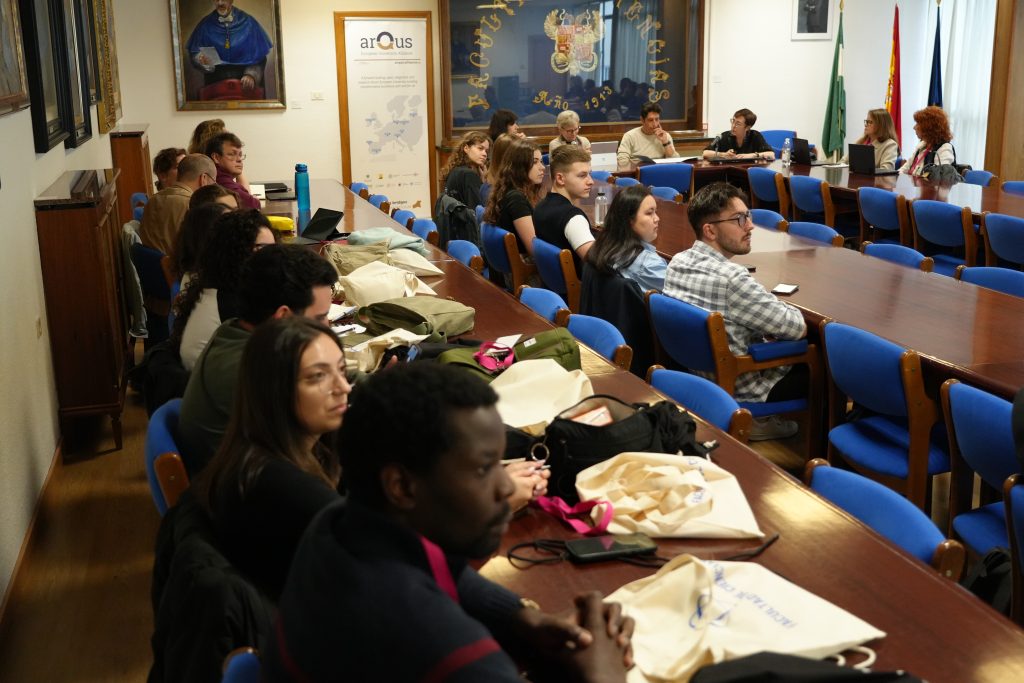
On this basis, the programme examined not only the causes and impacts of climate change, but also how citizens can and must mobilise to address climate challenges and adopt climate resilience strategies. Rapid climate change is affecting both the social well-being of citizens and the balance of ecosystems, disrupting the life cycles of elements that are essential to the health and sustainability of our planet.
“It was a valuable experience – I would recommend it to everyone, whether they are students or teaching staff. The activities were well-organised, timely, structured, and meaningful,” said Professor Egidijus Rimkus from Vilnius University.
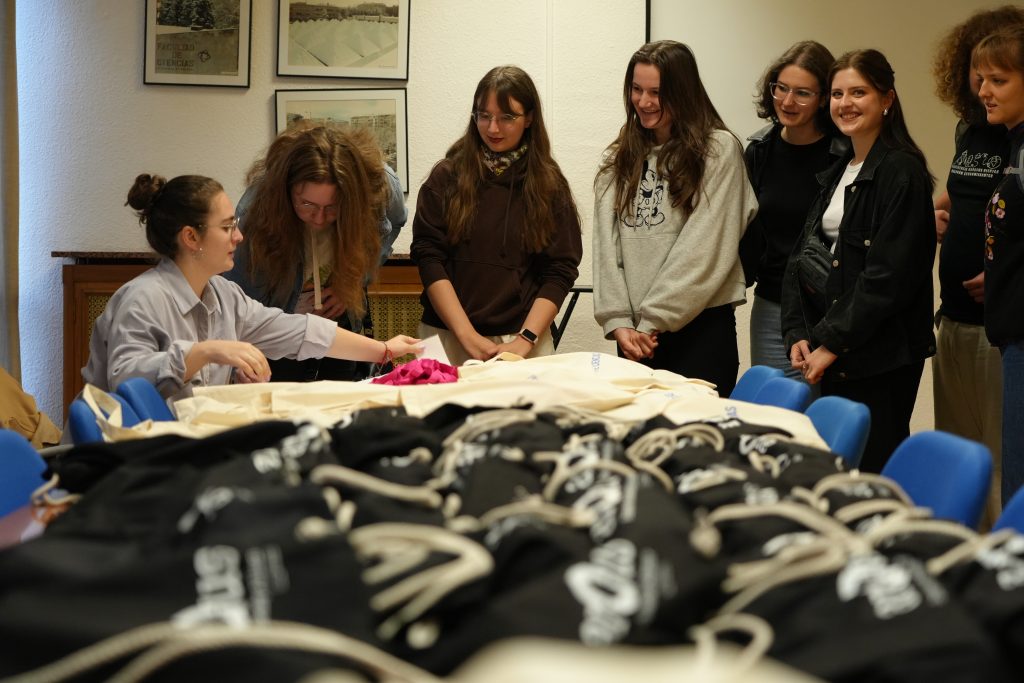
The virtual phase of the programme of 11 lectures, running from March to June, with two lectures per week, collaborative learning and a student-led forum. It was aimed at students from the four participating universities and involved not only lecturers from these universities, but also from Leipzig University and the University of Padua.
From 5 until 9 May, the University of Granada hosted the BIP’s second phase: its physical mobility. During this week-long session, students attended lectures that covered the links between health, environmental protection, and climate change. They discussed the importance of rare earth elements in technologies used to combat climate issues.
“We had a very intensive week, with classes running all day – from morning to evening. The students worked in international teams, tackled issues, shared ideas, and proposed solutions. It was an exciting and valuable experience,” added Professor Rimkus (Vilnius University). “Topics such as climate change, market dynamics, or social issues are highly interdisciplinary and require a variety of perspectives. That’s why we aimed to include students from different VU faculties; it’s the only way to take a truly holistic view of global challenges. And it worked – the students tackled issues beyond a single discipline’s boundaries.”
One of the participants – Miglė Kapliukaitė, a pharmacy student from Vilnius University – highlighted that the project not only deepened the participants’ academic knowledge but also introduced them to practical initiatives: “Together with lecturers and students from Poland, Portugal, and Spain, we explored topics related to climate change. In Spain, we visited a company working on innovative physical solutions and the largest vegetable supplier in Europe, which operates on sustainable business principles – their vegetables can often be found in Lithuanian stores, too.” According to her, one of the most valuable aspects was the intersection of different disciplines: “Discussing climate issues from so many different angles was incredibly engaging.”
At the end of the programme, the Lithuanian participating students gave a presentation on Vilnius as a green capital. “In our final assignment, our team analysed the sustainability-related challenges still relevant in Vilnius and identified areas where significant progress could be made. We also looked at examples of best practice and reviewed successful solutions already being implemented in the city,” said Gabija Bakutytė, a geography student at VU.
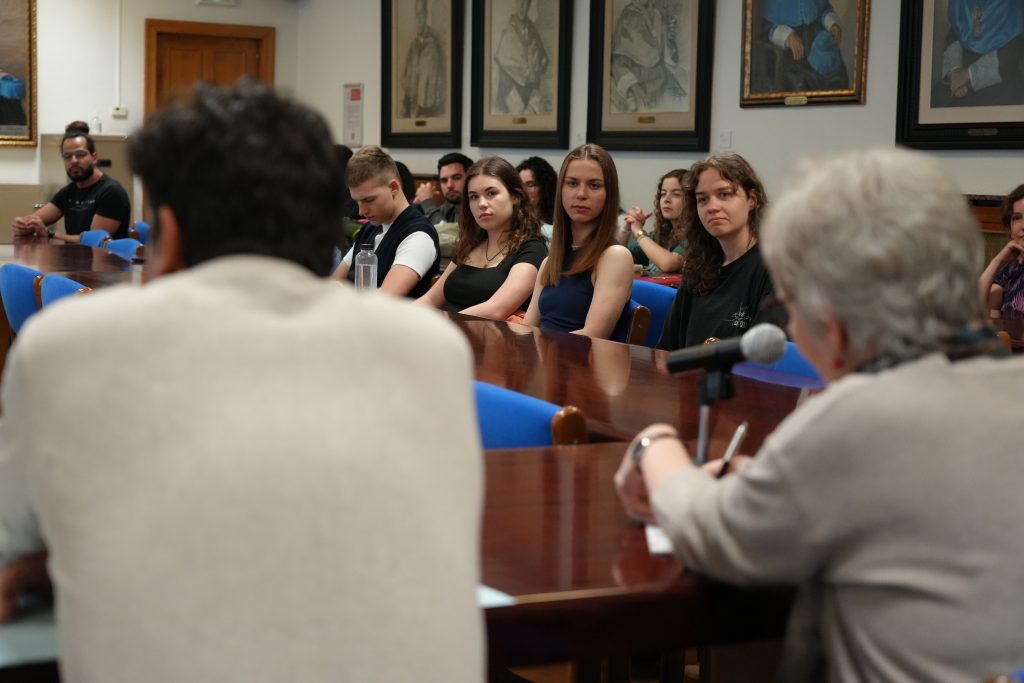
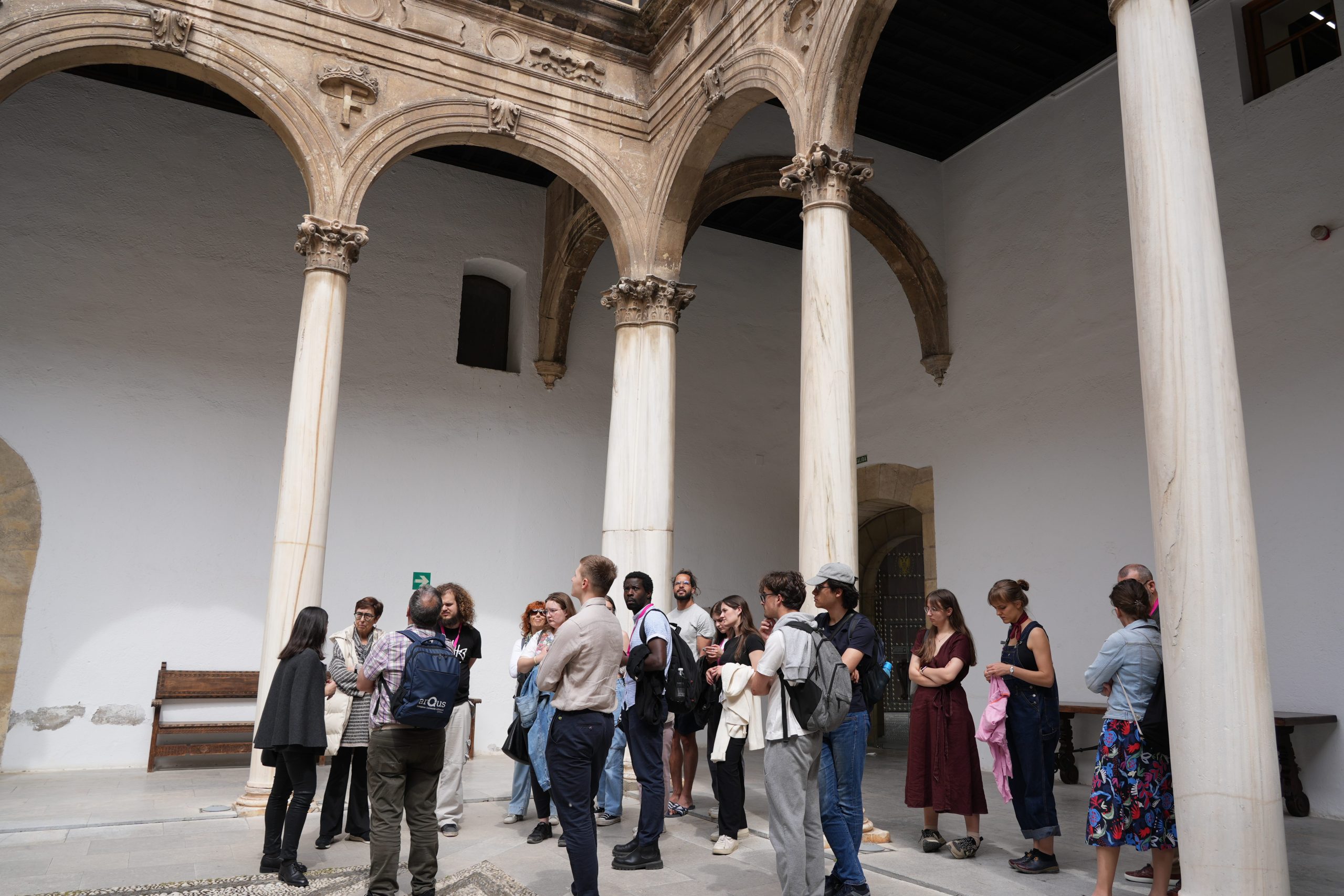
Prof. Rimkus noted that the experience was meaningful on both an academic and personal level for all participants. He emphasised that students remained highly motivated throughout the programme: “The students were truly engaged – not only did they complete the assignments, but they also later integrated them into their studies. One student even chose her final thesis topic based on what she experienced and learnt during the programme. It mattered to them – not just as a professional subject, but as something personally meaningful.”
According to student Gabija Bakutytė, the programme provided valuable insights and lasting memories: “Participating in the Arqus programme gave me some of the best memories – it deepened my knowledge and broadened my perspective. It was an incredibly enriching opportunity to attend interesting lectures on scientific topics, engage in discussions, meet new people, and get to know the host country through guided excursions and personal exploration. Ultimately, I returned home with many unforgettable moments and new friendships”. She urged other students to make the most of what the Arqus Alliance has to offer: “I would strongly recommend the Arqus programmes to anyone looking for broader opportunities”.
